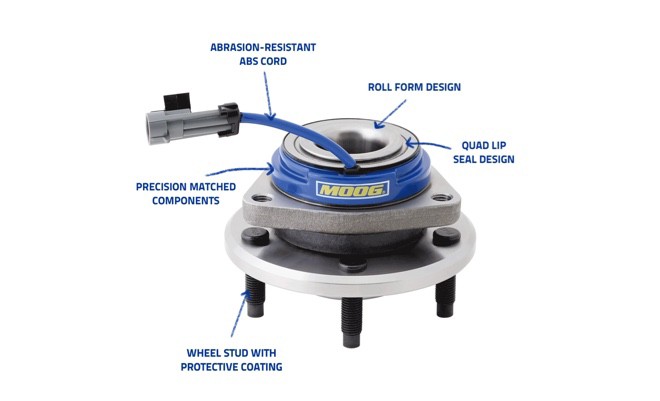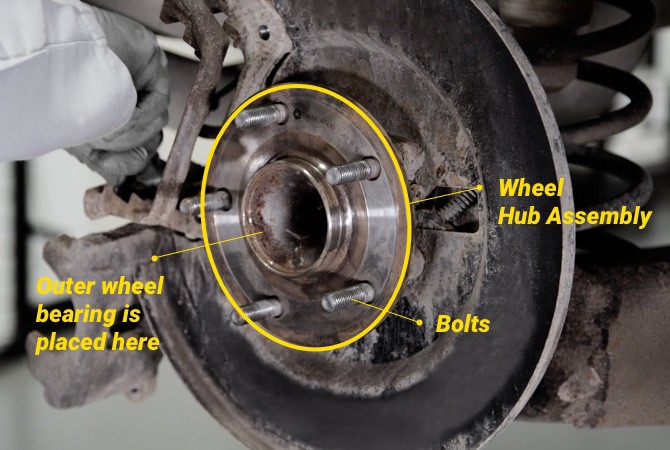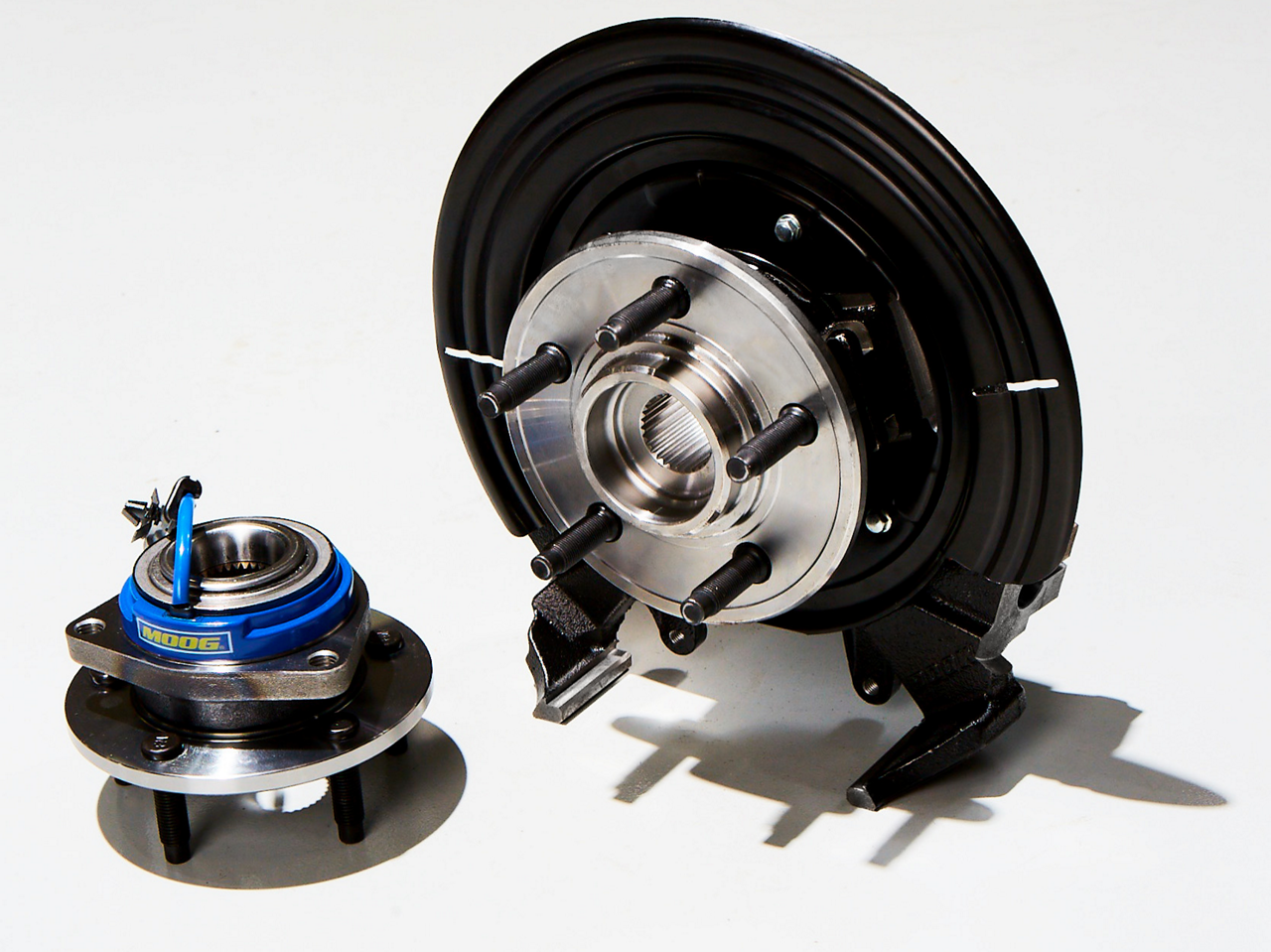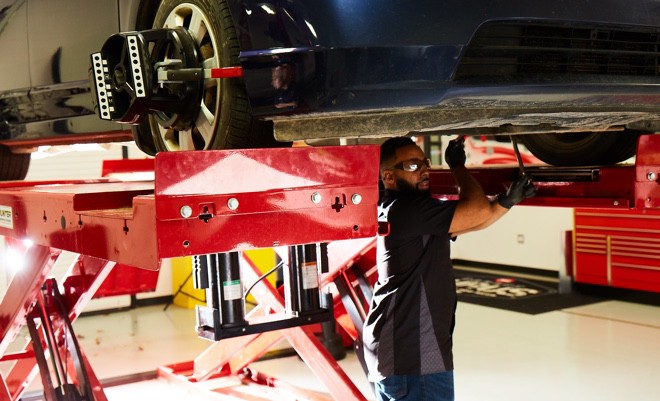From safely negotiating a tight turn on a winding country road to changing lanes on the freeway, you depend on your vehicle to steer exactly where you want it to every time you jump in the driver’s seat. Have you ever thought about what enables you to turn left and right and go straight down the road? You might be surprised to learn that small part called a wheel hub assembly is a key component of your steering system.
What is a wheel hub assembly?

Responsible for attaching the wheel to the car, a wheel hub assembly is a pre-assembled unit that features precision bearings, seals and sensors. Also called a wheel hub bearing, hub assembly, wheel hub unit or hub and bearing assembly, the wheel hub assembly is a crucial part of your steering system contributing to the safe steering and handling of your vehicle.
Where is it located?

On each wheel, you’ll find the wheel hub assembly between the drive axle and the brake drums or discs. On the brake disc side, the wheel is attached to the bolts of the wheel hub assembly. While on the side of the drive axle, the hub assembly is mounted to the steering knuckle either as a bolt-on or press-in assembly.
To see the wheel hub assembly, you’ll need to remove the wheel and then remove the brake caliper and brake rotor.
On most late-model vehicles manufactured since 1998, there is a wheel hub assembly in each wheel. When the assembly goes bad, it is removed and replaced with a new assembly. On cars made before 1997, front wheel drive cars use wheel hub assemblies at each wheel and rear wheel drive vehicles use two individual bearings and seals in both front wheels. Unlike a wheel hub assembly, bearings can be serviced.
What does a hub assembly do?

First and foremost, the wheel hub assembly keeps your wheel attached to your vehicle and allows the wheels to freely turn enabling you to safely steer.
The wheel hub assembly is also critical to your anti-lock braking system (ABS) and the traction control system (TCS). Besides bearings, hub assemblies contain the wheel speed sensor that controls your vehicle’s ABS braking system. The sensor constantly relays to the ABS control system how fast each wheel is turning. In a hard braking situation, the system uses the information to determine if anti-locking braking is needed.
Your vehicle’s traction control system also uses the ABS wheel sensors to operate. Considered an extension of the anti-lock braking system, the TCS system and ABS system work together to help you keep control of your car. If this sensor fails, it can compromise your anti-lock braking system and your traction control system.
How do I know if I have a bad wheel hub assembly?
A failing wheel hub assembly can present a variety of symptoms including:
Growling, humming, squeaking, chirping or squealing from the tires when driving at 30-45mph.
Steering wheel may shake as you drive.
ABS light will come on if the sensor isn’t reading properly or if the signal is lost.
What can happen if I drive with a damaged wheel hub assembly?

Driving with a bad wheel hub assembly is dangerous. As the bearings inside the assembly become worn out, they can cause the wheels to stop turning smoothly. Your vehicle can become shaky and the wheels not secure. In addition, if the hub assembly degrades, the steel can fracture and cause the wheel to come off.
If you suspect that you have a failing wheel hub assembly, take your vehicle to your trusted mechanic for service.
Learn more about premium steering and suspension parts, find your car part, or find where to buy your auto part today.
The content contained in this article is for informational purposes only and should not be used in lieu of seeking professional advice from a certified technician or mechanic. We encourage you to consult with a certified technician or mechanic if you have specific questions or concerns relating to any of the topics covered herein. Under no circumstances will we be liable for any loss or damage caused by your reliance on any content.
Other Parts For Your Vehicle
MOOG® offers a wide variety of auto parts for all your vehicle needs.
Check them out today!